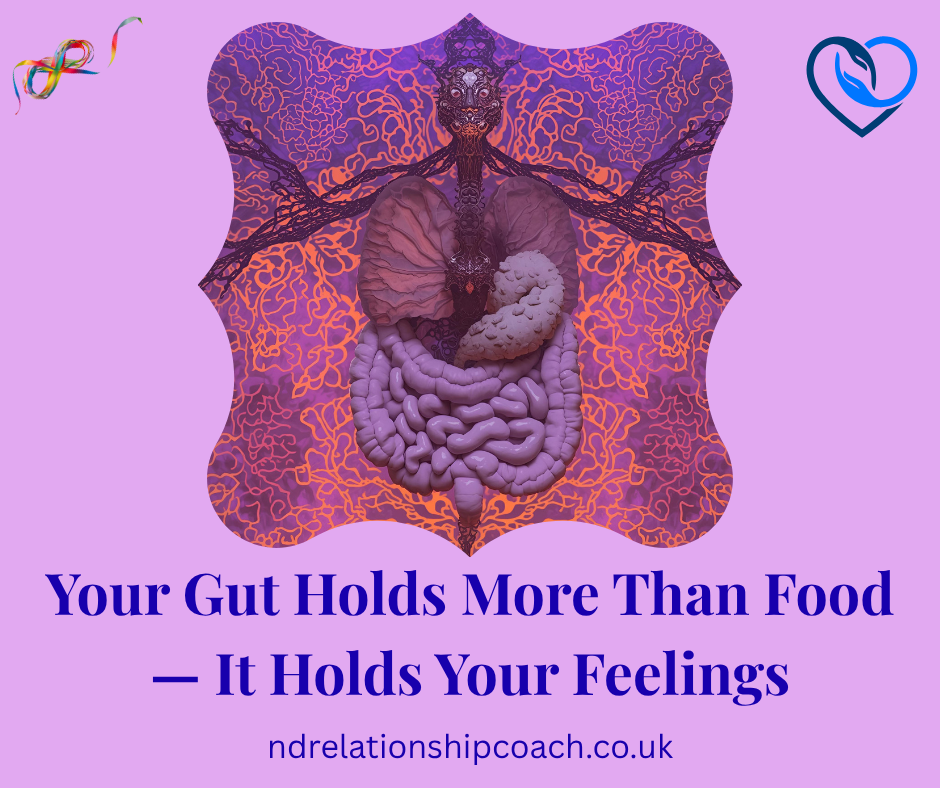
When the Gut Speaks: Stress, Neurodivergence, and Relationships
Have you ever felt “butterflies” in your stomach before a date? Or completely lost your appetite before meeting someone new? Maybe you’ve had IBS flare-ups or nausea that seemed to appear out of nowhere when you were navigating a relationship conversation.
For many neurodivergent people, these gut reactions aren’t random — they’re the body’s way of processing stress. And when it comes to dating and relationships, stress can become a silent passenger, showing up in ways we don’t always notice or connect.
As a coach who supports neurodivergent people in dating and relationships, I’ve seen how powerful it can be to understand the gut–stress connection. But this isn’t just professional knowledge — it’s personal too.
For years, I lived with gut issues: nausea, IBS, and ultimately a gastric ulcer that nearly cost me my life. Outwardly, I was coping. Inside, my body was overwhelmed. It took a health crisis for me to finally listen to what my gut had been trying to say all along. That experience has shaped my passion for helping others notice the whispers before they become shouts.
Stress: The Silent Saboteur in Dating
Stress often goes unnoticed. For neurodivergent people, it can show up in unique ways — sensory overload on a date, the exhaustion of masking, the uncertainty of interpreting signals, or the pressure of navigating intimacy.
We might dismiss the knots in our stomach as “just nerves” or blame ourselves for being “too sensitive.” But stress doesn’t only live in the mind. It shows up in our bodies, and for many of us, it lives in the gut.
The Gut–Brain Connection
The gut is sometimes called our “second brain.” It has its own nervous system and communicates constantly with the brain. That means our emotions, thoughts, and stress responses directly affect digestion — and vice versa.
When we’re in “fight or flight,” digestion is put on hold. Blood is redirected away from the gut, enzymes decrease, and the stomach and intestines react. That’s when we experience bloating, cramps, constipation, diarrhoea, nausea, or even longer-term issues like ulcers.
In the context of relationships, this can make dating and intimacy feel even harder — because your body is reacting before your words can catch up.
When Stress Goes Unnoticed
Often, we don’t realise the toll stress is taking — especially if it’s been there a long time. Neurodivergent people may normalise constant anxiety or stomach issues, assuming “this is just how I am.”
But what if those digestive signals aren’t flaws, but invitations? Invitations to pause, listen, and connect with what’s really going on beneath the surface.
A Transformative Coaching Approach
In coaching, I don’t treat gut issues as problems to “fix.” Instead, we slow down, get curious, and ask:
-
What is your body trying to tell you?
-
Where do stress and relationships intersect for you?
-
What patterns — like masking, people-pleasing, or sensory overwhelm — might be showing up in your gut?
-
How can you create safer, more authentic experiences in dating and relationships?
When neurodivergent people are given space to explore these questions with compassion and no judgement, something shifts. Stress softens. Awareness grows. The body feels safer. And with that, relationships — with ourselves and others — can feel more possible, more authentic, and more nourishing.
Gentle Invitations
If you notice stress in your stomach when dating or in relationships, try these practices:
✨ Body check-ins – Place a hand on your stomach and ask: What do I need right now?
✨ Deep breathing – Slow belly breaths calm the nervous system and support digestion.
✨ Pace yourself – Give yourself permission to take relationships at your speed.
✨ Track triggers – Notice if certain environments, conversations, or expectations affect your gut.
✨ Seek safe support – You don’t have to navigate stress and relationships alone.
Final Thoughts
Your gut is one of your greatest truth-tellers. It feels everything — the hope, the anxiety, the overwhelm, the longing. It’s not a weakness, it’s a signal.
For me, it took a health crisis to finally listen to my gut. I don’t want that for you. That’s why I support neurodivergent people in dating and relationships — helping you build awareness, create safety, and connect with others in ways that honour your whole self.
💬 If this resonates, I offer a free chemistry call. A space where you can explore what your body — and your heart — might be trying to tell you.
Let’s listen together.
 Demos
Demos  Colors
Colors  Docs
Docs  Support
Support 













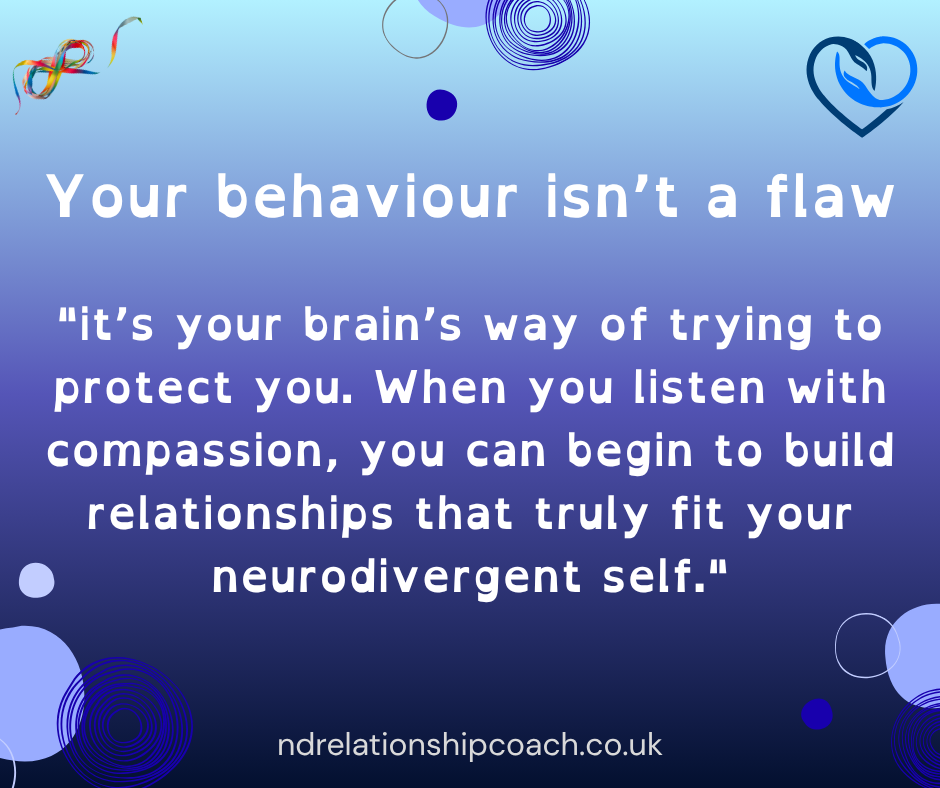
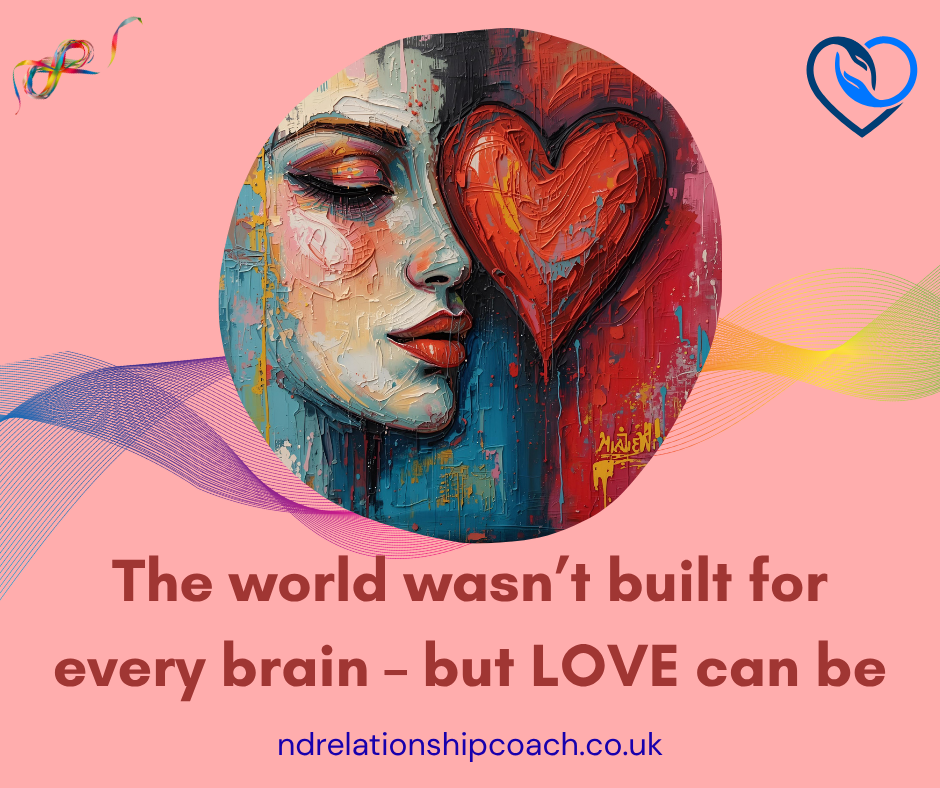
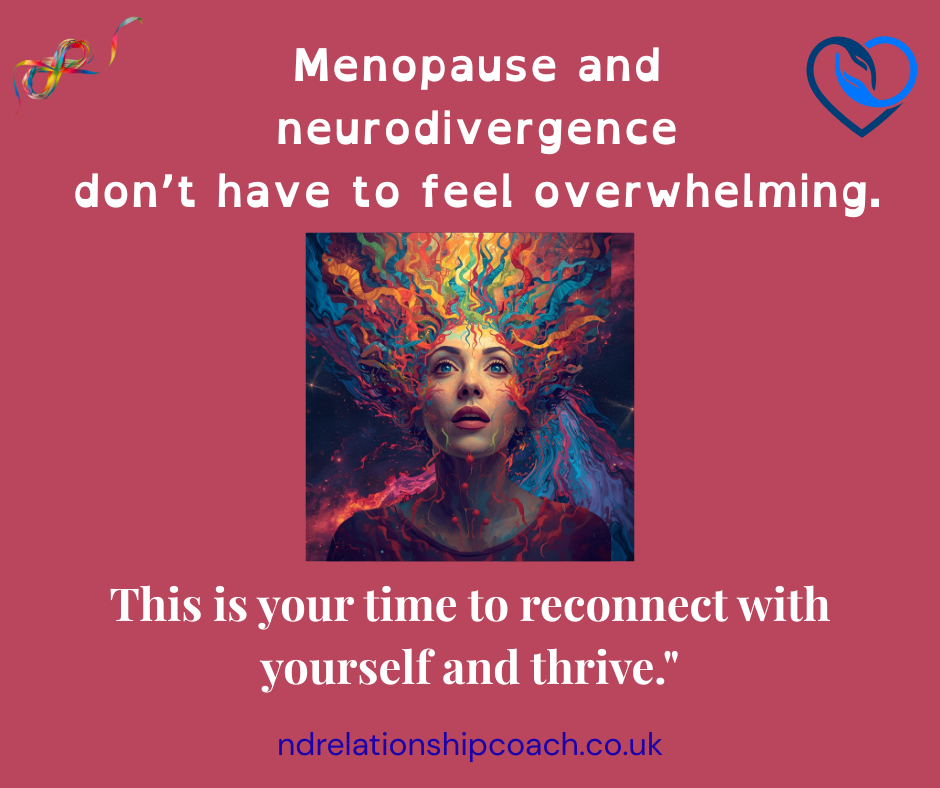
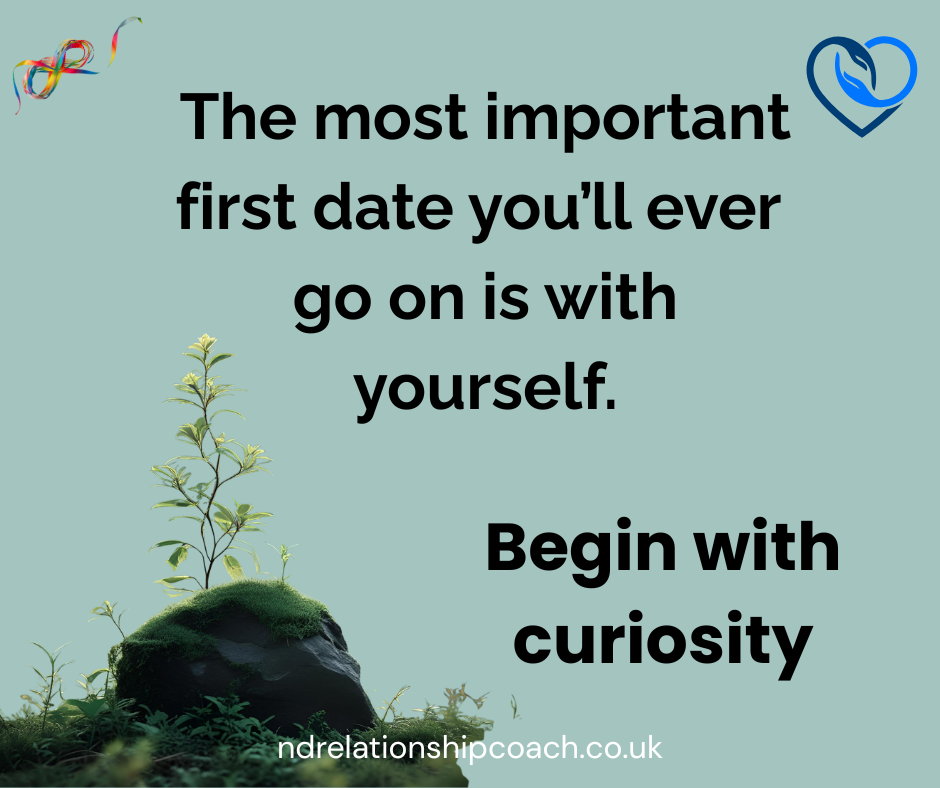
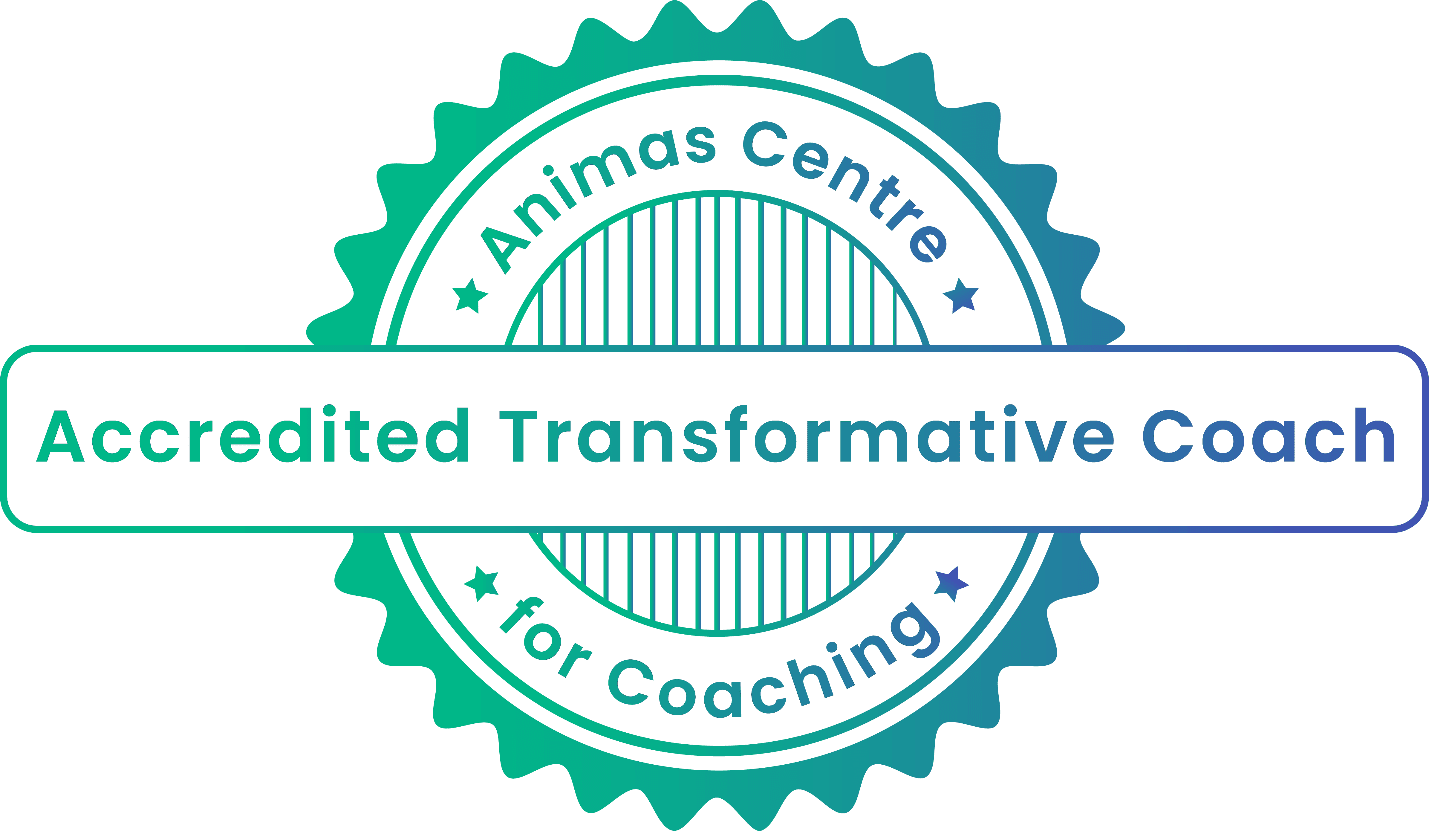

Denise Sandercock
July 12, 2025I’ve just finished reading your latest Blog… interesting and thought provoking too. I’ve heard that second brain phrase before I haven’t really paid enough attention to that fact… up until very recently that is. It made so much sense. Thank you